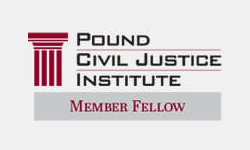Some of the most complex and emotional types of family law disputes revolve around child custody. When a child’s parents divorce or separate from one another, they must make decisions on how they will share parenting responsibilities, where the child will live, and how the child’s time will be divided between each parent. If the parents are able to agree, the courts will usually approve their decision. If not, the courts may step in and make a decision on their behalf.
What Is the “Best Interests of the Child” Standard?
In the event that divorcing or separating parents in Rhode Island cannot come to an agreement on child custody or visitation, the courts will make decisions on the parents’ behalf based on the “best interests of the child.” This subjective and analytical standard tasks judges with making decisions that align with a child’s safety, wellbeing, and developmental needs. But what exactly determines what the courts see as a child’s best interests?
To determine a child’s best interests, the courts must consider the following factors:
- The wishes of the child’s parent or parents
- The child’s preferences, if of suitable age
- The relationship between the child and his or her parents
- The child’s adjustment to his or her home, school, and community
- The mental health of all involved individuals
- The stability of the child’s home environment
- The parent or parents’ fitness to care for the child
- The willingness of the parents to facilitate a relationship between the child and the other parent
What Are the Different Types of Custody Arrangements?
There are a number of different custody arrangements that may be awarded based on the child’s best interests, the fitness of the parents to care for the child, and the level of cooperation between parents.
Possible custody arrangements that may be awarded include:
- Sole legal custody: One parent is awarded the authority to make all important and major decisions regarding a child’s health, welfare, and upbringing without the other parent’s consent. Parents with sole custody are also given physical placement of the child.
- Joint legal custody: Both parents are involved in making decisions regarding their child’s upbringing and welfare. In theory, both parents with joint custody have equal rights in making decisions on their child’s behalf and have full rights to access their child’s medical, educational, and other important records. Joint custody arrangements require a certain level of cooperation and respect between parents in order to be a feasible option.
- Physical custody: One parent is given physical placement of the child or children. Physical placement refers to where the child will live on a daily basis. The parent who does not have physical custody will generally be given reasonable visitation rights, while the parent with physical placement will have the right to receive child support payments from the other parent to help with the cost of raising the child.
- Shared physical custody: The child lives with both parents at separate times. This arrangement is somewhat rare in Rhode Island. Shared physical custody arrangements are determined on a case-by-case basis depending on the schedules of the parents. Arrangements may include having parents alternate physical custody every week, every month, or every few days if feasible.
- Split placement: One child lives with one parent, while another child lives with the other. This may be used to prevent children from having to travel back and forth between separate homes, or as a method of separating siblings who do not get along.
Child Custody Attorney in Rhode Island
If you are involved in a divorce, paternity dispute, post-divorce, or other form of family dispute that concerns the custody of your children, it is important you contact a highly-trained Rhode Island child custody lawyer from TJC • ESQ. Having represented the rights of parents for more than three decades, our family law attorneys can help you protect your rights to your children and maximize your chances of securing a favorable outcome for you situation.
Discuss your case for free by calling our office today at 401-400-4254.










